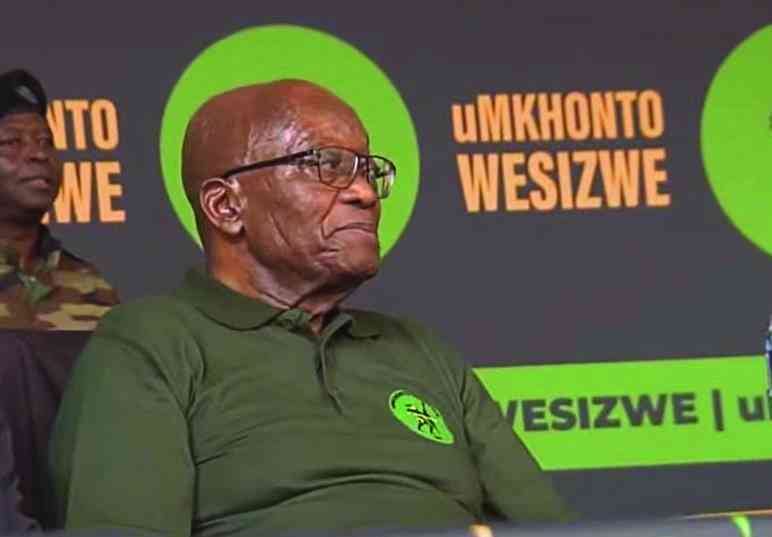
“The old world is dying, and the new world struggles to be born,” wrote Italian Marxist Antonio Gramsci in 1929. “Now is the time of monsters.”
Gramsci’s remark is being liberally quoted by South African journalists in the run-up to the election on May 29, for the old world in which the African National Congress completely dominated the country’s politics is definitely coming to an end. For the first time since the end of apartheid, the ANC’s share of the vote will fall below 50%.
Unfortunately, the decline of the party that ended white minority rule in South Africa has not led to the emergence of big new parties with big new ideas. It’s just the same old parties with the same old ideas.
Thirty years on from the end of apartheid, the country’s official unemployment figure is 32%. More than three-fifths of South Africans live in poverty. The World Bank says that it is Africa’s most developed country, but also it’s most unequal — and the inequality is still colour-coded.
Even when the ANC tries to do something right, it gets it wrong. One-quarter of the country’s farmland is now owned by black South Africans, for example, up from 10% at the end of apartheid — but both productivity and employment on those farms have crashed because the new owners lack capital to invest in them and the skills to run them.
For nine years (2009-2018), when Jacob Zuma was president of South Africa and of the ANC, the country was in the hands of genuine thieves pursuing a project of “state capture”. Billions of rands were stolen, public institutions were subverted and state-owned companies were pillaged — and in the end Zuma spent two months in jail.
Zuma has now founded a new party, uMkhonto weSizwe, which will attract enough Zulu votes in the forthcoming election to guarantee that the ANC doesn’t just fail to win half the votes; it will crash to around 40%. (He is 82, but he wants revenge.) The Democratic Alliance (DA) is at 22%, and the Economic Freedom Fighters (EFF) at 11,5%.
The socialist ANC is riddled with corruption and nepotism, the centre-right DA is a safe haven for most white voters and many middle-class blacks, and the “Marxist-Leninist” EFF are pantomime radicals whose “firebrand” leader, Julius Malema, makes an unconvincing monster. If this is the “new world” struggling to be born, it is deeply unimpressive.
- Zim headed for a political dead heat in 2023
- Record breaker Mpofu revisits difficult upbringing
- Tendo Electronics eyes Africa after TelOne deal
- Record breaker Mpofu revisits difficult upbringing
Keep Reading
EFF members of parliament wear identical red boiler suits and Malema usually wears a red Che Guevara-style beret. He talks boldly about nationalising the banks and the mines, and his line on land reform and white farmers is a real attention-getter: “We are not calling for the slaughtering of white people. At least for now.”
But that sort of bloodcurdling rhetoric has a strictly limited appeal, and the EFF is not polling any higher than it did in the last election. Malema’s best chance of gaining a share of power lies not in revolution, but as a junior partner (at least at first) in coalition with the ANC he affects to despise.
He even acknowledges his real game plan publicly from time to time, albeit in his usual aggressive language: “We are going to kiss a lot of frogs along the way (to power). We are patient. The ANC is not a small organisation. You have to eat it bit by bit.”
It’s a plausible strategy, given how tattered and exhausted the ANC is, but by the time Malema becomes president (if he ever does) he may have mellowed a great deal more. In lifestyle, he is already as far from the people he claims to represent as the most privileged ANC “comrade”, although he can certainly talk the talk.
As for the possibility of reform within the ANC, it’s probably too late for that. Cyril Ramaphosa, President since 2018, was seen as the party’s last, best hope, but he has made little headway against the local party barons who have carved up the economy between them. He is also now beset by accusations of corruption himself.
And yet, it’s too soon to write off South Africa as a failed state.
The economy is a wreck, but the resources are still there. The schools are atrocious, but enough children succeed to make it one of the better educated countries in Africa.
The violence touches almost everybody one way or another, but people carry on regardless.
The “30 lost years” were probably inevitable. Those who fought for South Africa’s freedom in the ANC were only human, they made great sacrifices, and after victory they felt entitled to some reward. Later recruits to the ANC just followed their example.
That has to end sometime. This is one of those inflection points when change becomes possible. It could happen.
- Dyer is a London-based independent journalist. His new book is titled Intervention Earth: Life-Saving Ideas from the World’s Climate Engineers. Last year’s book, The Shortest History of War, is also still available.






